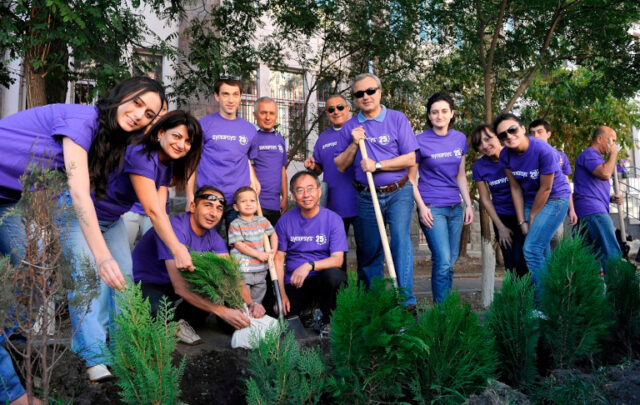The following is an excerpt from Nourished Planet: Sustainability in the Global Food System, published by Island Press in June of 2018. Nourished Planet was edited by Danielle Nierenberg, president of Food Tank, and produced with support from the Barilla Center for Food & Nutrition.
Agriculture is the base of food systems. In the view of Alexander Müller, study leader of The Economics of Ecosystems and Biodiversity in Agriculture and Food (TEEBAgriFood), “Agriculture is arguably the highest policy priority on today’s global political agenda, in recognition of its widespread impacts on food security, employment, climate change, human health, and severe environmental degradation.”
Agriculture affects so many aspects of our society, and monitoring them with a standardized method can be a challenge for governments, businesses, and consumers. A deeper understanding of the effects provides a foundation for all actors to work together toward meeting the global demands for healthful foods and ethical and profitable sustainable farming practices.
A method being applied more widely in the food system today is an economic model called true cost accounting, which identifies and quantifies the total cost of food and agricultural production depending on the type of farming system. The goal is to improve the transparency of the true cost of producing food to increase fairness to farmers, make food more affordable for consumers, and decrease environmental and public health impacts.
When making food choices, eaters may consider taste or nutrient content, but they are not often aware of the “true” cost of the food’s availability at the market. The retail price of food rarely accounts for the cost of pollution, water scarcity, soil degradation, increasing GHG emissions, and poor labor standards, not to mention the health effects of non-nutritious foods.
To explain the concept of true cost accounting, Adrian de Groot Ruiz, executive director of the Dutch-based social enterprise True Price, compared conventional farming of Brazilian coffee in that country’s Zona da Mata region with best-practices farming, which includes fair trade, organic, and agroforestry practices. He found that, on average, consumers were paying $2 per 2.2 pounds of conventionally farmed coffee. The true cost for that 2.2 pounds of coffee—factoring in the value of land use, water, energy, pollution, and fair and safe working conditions—was $5.17. In contrast, best-practices coffee cost consumers $2.78 per 2.2 pounds and had a true cost of $4.58.
Ruiz suggested four possible interventions: Establish an equal pay program to address income discrimination, divert money from a community program to higher individual wages, increase the yields, and implement sustainable energy programs on the farms. He estimated that if farmers adopted these changes, not only would the true cost of 2.2 pounds of coffee drop to $3.79 in 5 years, but farmers who often operate at a loss would be truly profitable.
Poorly functioning farming systems are not only detrimental to the environment, as discussed in Chapter 2, they can be harmful to the health of both eaters and farmworkers. In 2015, the United States reported more than 540 cases of cyclosporiasis, an intestinal illness linked to cilantro that’s contaminated with human feces because workers in the Mexican fields where the cilantro is grown don’t have access to bathrooms or the ability to wash their hands in the fields. And roughly 20 percent of all liver cancers are linked to maize contaminated by aflatoxin (a toxic mold caused by poor production and storage practices), particularly in sub-Saharan Africa.
These alarming facts are the result of a broken food system, and the high, hidden costs should be catalysts for change and reasons to revolutionize current systems. Applying the method of true cost accounting to agriculture can provide a better understanding of the impacts—both positive and negative—that agricultural practices and food systems have not only on health but also on the environment, society, and the economy. In addition to measuring the negative costs associated with food production, true cost accounting can help quantify positive impacts of the food system on communities, society, and environment.
Click HERE to purchase Nourished Planet today! Food Tank readers can enjoy a 20 percent discount with promo code: FOOD.





